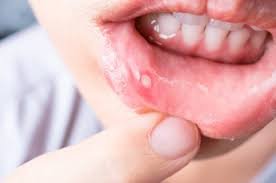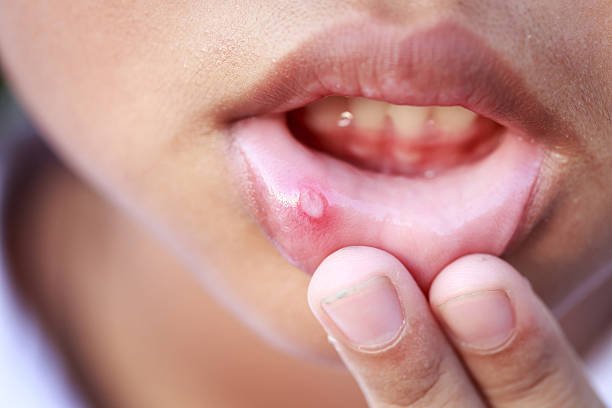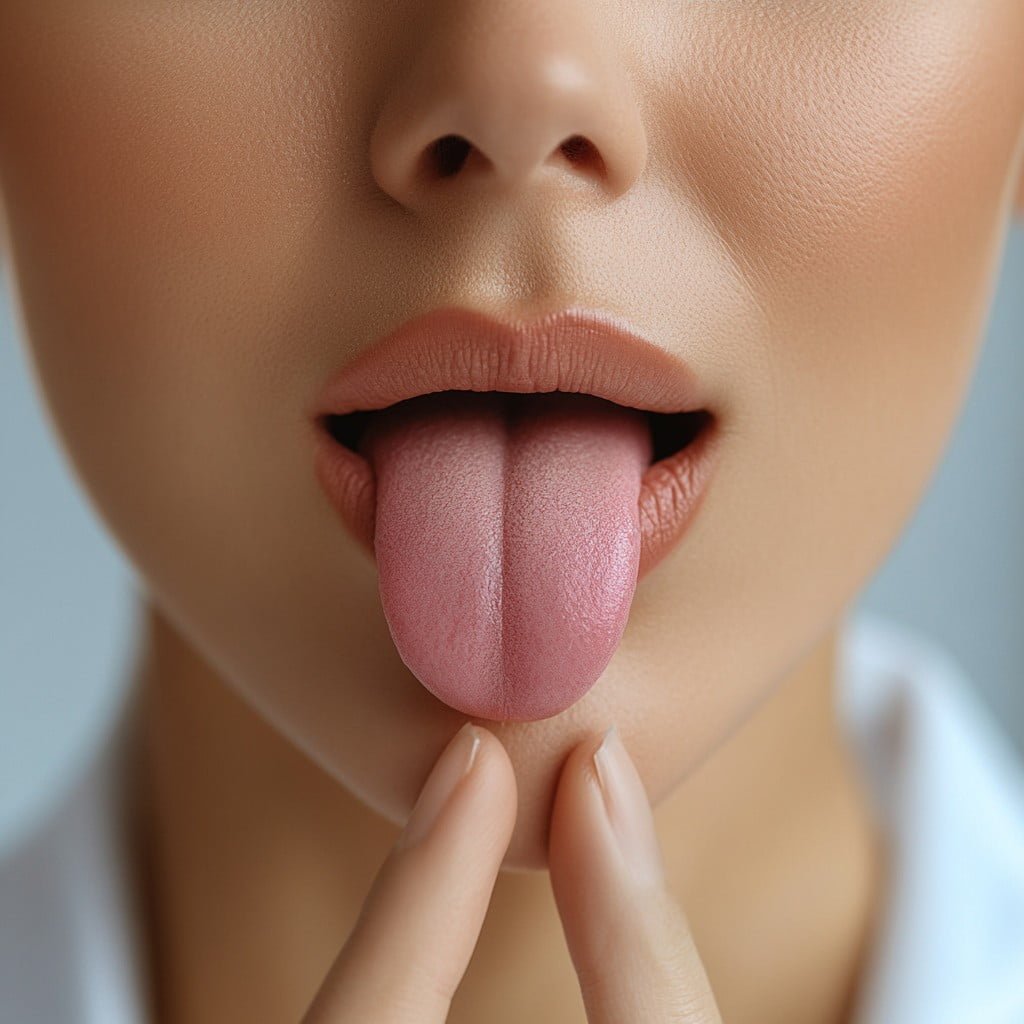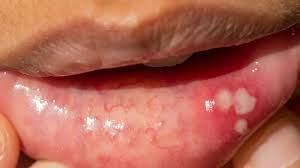Table of Contents
How to Get Rid of Canker Sores
Canker sores are small, painful ulcers that appear inside the mouth, which often make daily activities such as eating, drinking, and speaking difficult. Although they are usually harmless and will heal on their own, various treatment and prevention measures can help reduce pain and speed recovery. In this comprehensive guide, we’ll explore the causes of canker sores, effective home and over-the-counter remedies, diet adjustments, prevention strategies, and when to seek professional medical advice.

1. What are canker sores and what causes them?
Canker sores, also known as aphthous ulcers, are shallow, round sores that appear on soft tissues inside the mouth, such as the cheeks, gums, tongue, or roof of the mouth. They are usually white or gray in color with a red halo around the edges. Unlike cold sores, canker sores are not caused by the herpes simplex virus and are not contagious.
How to Get Rid of Canker Sores
Common Causes of Canker Sores
Understanding the possible causes of canker sores can help with their management and prevention. Here are some common triggers:

- Injury to the mouth:Accidental biting, aggressive brushing, or dental procedures can damage the lining of the mouth, causing canker sores.
- Stress and Hormonal Changes:Emotional stress, anxiety, or hormonal changes, especially during menstruation in women, can trigger the development of canker sores.
- Certain foods: Acidic foods such as citrus fruits, tomatoes and vinegar, as well as spicy and salty foods, can irritate the lining of the mouth and contribute to the formation of canker sores.
- Nutritional Deficiencies:Deficiencies in essential nutrients such as vitamin B12, iron, folic acid, and zinc have been linked to an increased likelihood of canker sores.
- Underlying medical conditions:Conditions such as celiac disease, Crohn’s disease, and immune system disorders can predispose people to recurrent canker sores.
2. Home remedies to get rid of canker sores
Home remedies can provide significant relief from the pain of canker sores and help them heal faster. These remedies are generally easy to use and use common household ingredients.
Effective Home Remedies
- Rinse with salt water: A simple and effective remedy is to rinse your mouth with a solution of salt and warm water. Mix a teaspoon of salt in a cup of warm water and swish it around your mouth several times a day. This can help reduce inflammation and promote healing.
- Baking Soda Paste:Make a paste by mixing baking soda with a small amount of water. Apply this paste directly on the canker sore to neutralize the acid and relieve irritation. Baking soda is mildly alkaline and can help reduce pain.
- Hydrogen Peroxide:Dilute hydrogen peroxide with an equal amount of water and use a cotton swab to apply it directly to the wound. This can help disinfect the area and aid in the healing process.
- Milk of Magnesia:Applying milk of magnesia on the wound can relieve the pain by wrapping it. Use a cotton swab to apply a small amount to the wound several times a day.
- Honey:Honey has natural antibacterial and anti-inflammatory properties. Applying a thin layer of honey to the wound can help reduce inflammation and promote healing. Make sure to use pure honey for best results.
3. Over-the-counter remedies for fast relief
For more effective relief, consider using over-the-counter (OTC) treatments designed specifically for canker sores. These products can help manage pain and speed healing.
Popular OTC Remedies in Canker Sores
- Tickle gels and ointments:Products containing benzocaine, an anesthetic, can numb the affected area and reduce pain. Look for topical gels or ointments that are specifically designed to treat canker sores.
- Mouth rinses:Antiseptic mouth rinses that contain ingredients like chlorhexidine can help reduce bacteria in the mouth and prevent secondary infections. Choose mouthwashes that are alcohol-free to avoid additional irritation.
- Oral medications:Non-steroidal anti-inflammatory drugs (NSAIDs) such as ibuprofen can help reduce pain and inflammation associated with canker sores. Follow the dosage instructions on the label for effective relief.

4. Dietary adjustments to prevent and manage canker sores
What you eat can have a significant impact on the development and healing of canker sores. Adjusting your diet can help manage symptoms and prevent future outbreaks.
Foods to Avoid in Canker Sores
- Acidic foods:Citrus fruits such as oranges, lemons, and grapefruit, as well as tomato-based products and vinegar, can aggravate canker sores. If you suffer from canker sores, try to limit the consumption of these foods.
- Spicy foods:Spices and hot peppers can irritate the lining of the mouth and aggravate the pain of canker sores. Consider cutting back on spicy foods during an outbreak.
- Salty Snacks:Salty foods like chips and pretzels can scratch and irritate the wound, which can worsen the pain. Choose light breakfast options to avoid aggravating the wound.
DOSE TO INCLUDE
- Yogurt:Yogurt contains pro bio-tics that can help balance the bacteria in your mouth and promote healing. Add yogurt to your diet as a comforting and beneficial food.
- Leafy Vegetables:Spinach, kale and other leafy vegetables are rich in essential vitamins and minerals that support immune health and help heal canker sores.
- Almonds and seeds:Almonds, sunflower seeds, and pumpkin seeds are high in vitamin E and zinc, which are important for skin and mucous membrane health. Adding them to your diet can aid in the healing process.
5. Precautions to reduce the risk of canker sores
Preventing canker sores involves making certain lifestyle changes and practicing good oral hygiene. Although it may not be possible to completely eliminate canker sores, these steps can help reduce their frequency and severity.
Oral Hygiene Practices in Canker Sores
- GENTLE BRUSHING:Use a soft-bristled toothbrush and brush your teeth gently to avoid damaging the delicate tissues of your mouth. Brushing hard or using a toothbrush with hard bristles can irritate the lining of the mouth and cause canker sores.
- Daily Flossing:Regular flossing helps keep your mouth free of food particles and bacteria that can contribute to irritation and sores. Be gentle to avoid injuring your gums.
- Use a mild mouthwash:Choose an alcohol-free mouthwash to avoid further irritation. Alcohol-based mouthwashes can dry out mucous membranes and worsen canker sores.
Stress Management
- Practice Relaxation Techniques:Techniques such as deep breathing, meditation and yoga can help manage stress levels, which can reduce the likelihood of canker sores caused by emotional stress.
- Get Adequate Sleep:Make sure you are getting enough restful sleep to support your immune system and overall health. Lack of sleep can contribute to increased stress and susceptibility to canker sores.
6. When to See a Doctor for Canker Sores
Although most canker sores heal on their own, persistent or unusually large sores may require medical attention. Consulting a health care professional can help address underlying conditions and provide targeted treatment.
Symptoms You Need Medical Attention
- Persistent sores: If a canker sore does not heal within two weeks, or if you experience frequent outbreaks, consult a health care professional for further evaluation.
- Abnormal size or number: Large lesions or multiple lesions appearing together may indicate a more serious health problem. A medical examination may be necessary to determine the underlying cause.
- Severe Pain: If the pain from a canker sore is severe and not relieved by home remedies or OTC treatments, seek medical advice for additional management options.
- Fever and Fatigue: Accompanying symptoms such as fever, fatigue, or swollen lymph nodes may indicate infection or other health problems that require medical attention.
7. Frequently Asked Questions
Q: Can canker sores be contagious?
- A: No, canker sores are not contagious. They are not caused by a virus and cannot be spread by contact with sores.
Q: Are there any long-term effects of canker sores?
- A: Canker sores usually heal without leaving scars. However, repeated episodes may indicate an underlying health problem that should be addressed with the help of a health care professional.
Q: Can some toothpastes cause canker sores?
- A: Yes, some people find that toothpaste containing sodium lauryl sulfate (SLS) can trigger canker sores. Switching to an SLS-free toothpaste can help reduce the frequency of cavities.
8. Conclusion
Canker sores can be a painful and disruptive problem, but with the right approach, their discomfort can be effectively managed. From home remedies and dietary adjustments to over-the-counter treatments and preventative measures, there are many strategies you can use to reduce pain and promote healing. If canker sores persist or are accompanied by other associated symptoms, medical advice should be sought to rule out underlying conditions. By taking proactive steps, you can reduce the frequency of canker sores and enjoy a more comfortable and healthy oral environment. Read more about health


Such a great read! Your tips are always on point!